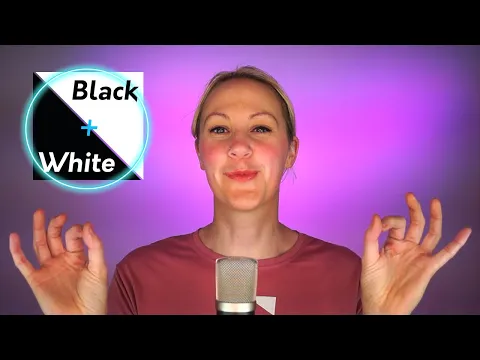
Demi: [00:00:00] Hey Simon, can we work on building new habits? I have a great idea for one.
Simon: Yeah, sure. What you thinking?
Demi: Okay, so every night I watch tv. Right? So that means I could do skipping during that time and watch tv.
Simon: Okay, so you’re gonna tie skipping into your watching TV behavior.
Demi: Yeah, exactly. Foolproof.
Simon: Yeah. It sounds like a plan, but obviously if it’s gonna work, you’re gonna need to do what’s important for every new behavior.
Demi: Oh, yeah, yeah. Of, of course, of course.
Simon: And that is…
Demi: Something about eating frogs?
Simon: No. Reflect.
Demi: Oh, reflect. Yay.
Simon: Okay, so let’s assume that Demi’s enthusiasm is authentic and dig into reflecting on behaviors. We need to reflect on failed and [00:01:00] successful behaviors to allow them to continue to develop and to become habits, however, behaviors do need to be looked at from opposing sides. Number one, black and white, did the behavior happen?
And then number two, the gray area. Are there any considerations that we should make outside of a black and white perspective?
Demi: Arrrghhhhh
Simon: So let’s take this behavior of skipping during tv time. We need to get proper parameters as to whether we’ve been successful or not. So it’s very clear as to whether black and white, did we do the behavior or did we miss out?
The reason is that if we’re ambiguous here, it’s very easy to convince ourself that we did well enough. For instance, I did skip once this week whilst watching tv, so technically I did the behavior.
Demi: Okay. I would say if I’m watching tv, I need to be skipping the whole
time.
Simon: Okay. That sounds rough, but let’s try it out.
Go, [00:02:00] Go, Go, Go, Go, Go. Oh no.
Demi: Hmm. Okay. So that didn’t really work out.
Simon: Right now we’re onto something because failing is just part of developing a behaviour. Because in reality, any behavior’s gonna go through a lot of variations until it is enjoyable and fits into your life. So let’s reflect. So from a black and white perspective, it was a fail, and we do need to focus from this perspective as otherwise, it’s very easy to get lost in the gray area.
Always coming up with justifications as to why a behavior didn’t happen. Tracking black and white gives us a very clear idea on whether we’re not learning and improving. Next, though, we need to look at the gray area. I e. Why did you fail? In this instance, you had a justifiable reason. The behavior that you set was just too hard.
So we know from the gray area [00:03:00] consideration that if we try to do this behavior like this again, you are likely to fail again. So how can we adjust it?
Demi: Hmm. Okay. New plan. I’ll skip for a minute and then I’ll rest for a minute.
Simon: Have a go!. Go, Go, Go, Go, Go, Go, Go, Go, Go. Go. Go, Go Go Go, Go, Go, Go, Go. AHHHHH!!!!.
Demi: Oh man, I totally thought that way would
work.
Simon: That’s the point though, is you will, until you test it. Don’t give up though it is another fail from a black and white perspective. But when we look at the gray nuance again, what else can we learn? So how do we improve?
Demi: Okay, what I’ll do is after every 20 minute episode, I’ll skip during the credits and the next intro.
Simon: Go for it.
Go, Go, Go, Go, Go, Go Go, Go, GOOO! [00:04:00]
Demi: Okay. So technically it failed, but I did it every day and I did love it and it definitely got better towards the end. So is it really a fail that needs to be changed again?
Simon: Nah,
I think you. Yeah, technically it was a fail, but in reality you’re actually very close to completing this behavior every time.
So I think you just need to repeat until you get it
nailed.
Demi: Okay, so I’ll use black and white assessment to see whether or not I’m getting closer to the tipping point of success and gray area to see whether anything needs to be adjusted to make that success more
likely.
Simon: Exactly. We have to use both sides and to give each a similar importance.
Falling too far into one just limits your ability to reflect
Demi: Gosh, building habits is hard.
Simon: It sure is, but remember, viewers at home, if you stick around and you keep learning from our videos, the small tweaks on how to get behaviour change. Eventually [00:05:00] all of it can fall into place. Outside of that, I hope this video’s been useful.
Do give us a like or a share or comment or any of that kind of interaction stuff cuz it really helps, especially at these very early days where we get little interaction and we have few viewers, but for those of you that do watch all of our videos, we do really appreciate it and we’ll see you next time.


